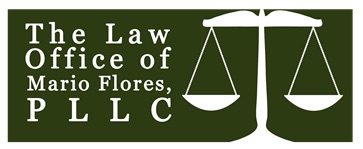Trusts Attorney in Austin, Texas
Most people are familiar with what a will is and what it does, but fewer people fully understand their other options when it comes to estate planning. Specifically, more people should learn about the different types of trusts and be able to answer the question, "How is a trust different than a will?" For some, trusts can offer a level of flexibility, security, and peace of mind that a will does not, but they do take a bit more legwork on the front end to get set up.
For help with this or to learn more about the benefits of a trust, reach out to me at The Law Office of Mario Flores for help. As an estate planning attorney at my main office in Austin, Texas, I can help individuals and families throughout the area, including Round Rock, San Marcos, and Georgetown.
Overview of Trusts
Before meeting with a lawyer, you should familiarize yourself with the different types of trusts to determine which one will work best for your needs. A trust is similar to a will in that it allows you to set aside certain assets and have them distributed to your beneficiaries after you pass away; however, they differ in a couple of key ways. First, when you set up a trust, you'll actually be transferring ownership of the asset into the name of a trustee, although you'll still retain control over it during your lifetime. Because the asset won't legally belong to you (since it's now held by your trustee), it can be immediately transferred to your named beneficiary after your death and fully bypass the process of probate. Additionally, trusts are kept private unlike wills and are ideal for those who may not want the public to know the extent of their wealth.
There are two types of trusts that are most commonly used: a revocable trust and an irrevocable trust. A revocable trust (sometimes referred to as a living trust) allows you to make changes to it during your lifetime and "revoke" any conditions. With this kind of trust, you'll set aside certain assets for your beneficiaries and during your life, you can add or remove items, rename, remove or add beneficiaries, as well as rename or remove your trustee. A revocable trust gives you the most flexibility and control over your assets and enables you to make revisions in response to changes in your life.
An irrevocable trust cannot be revised (revoked) after it's been established. This means that once an asset has been allocated to a specific beneficiary, you can't make any changes, so you need to be 100% sure your decision is final. Irrevocable trusts can be beneficial from a tax standpoint as they can also serve to protect your assets from creditors.
Whichever type of trust you choose, you should always work with an experienced estate planning attorney who can make sure you thoroughly understand your choices. They can also ensure that the trust is well-written and legally binding, reducing the risk of someone contesting it.
Why Having a Trust is Important
People choose trusts for a variety of reasons, but one of the biggest is that it bypasses probate. This means that your assets can be immediately transferred to your beneficiaries. In contrast, a will has to go through the court system which can take several months. Probate is also a public process so anyone can request to see the contents of a will and a trust will always be kept private. Trusts can also help you keep assets protected until a future date. This can be helpful if you have minor children since you can stipulate that an asset won't be made available until they reach a certain age, or you can specify that assets can only be used for certain activities like college tuition. Lastly, trusts offer protection in case of mental incapacitation.
Choosing a Trustee and Beneficiaries
When you set up a trust, you'll have to choose a trustee who will become the legal owner of your assets. Many people choose to appoint someone they know well such as a close family member to this position, but you can also assign a professional trust company or trust attorney to this role. Whomever you pick, this should be someone you fully trust to safeguard your assets and administer the trust according to your wishes when the time comes.
You'll also have to choose your beneficiaries who are often family members. Most people choose to use a revocable trust because it allows you to update or revise beneficiaries when needed. For example, if you get divorced and remarry, you'll likely want to remove your ex-spouse from the trust and add your new spouse.
Trusts Attorney in Austin, Texas
If you're in the Austin, Texas area and would like to speak with an estate planning attorney about your options for setting up a trust, reach out to me at The Law Office of Mario Flores, PLLC.
